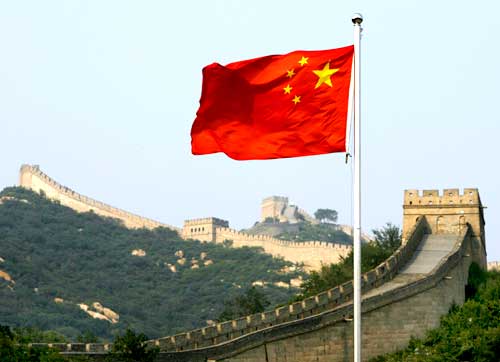Support to terrorist activities inside India by elements in Pakistan's military and its spy agency could lead to confrontation between the two neighbours which has the potential to rapidly escalate into a nuclear exchange, a top American commander on Thursday warned.
Admiral Samuel Locklear told a Senate Committee that little progress has been made with regard to recent confidence building measures between the two nuclear-armed neighbours.
"Support by elements of Pakistan's military and intelligence services for violent extremist organisations targeting India strains the relationship; this support has the potential to result in military confrontation which could rapidly escalate to a nuclear exchange," Locklear told lawmakers during his confirmation hearing to head the US Pacific Command.
"Current efforts at dialogue have yielded few concrete results on the core security issues, especially regarding the resolution of territorial disputes," he said in a written response to questions asked by the top Senate panel.
However, he said efforts have provided each side greater insight into the other's positions.
"While progress is slow, the trajectory is positive and offers the promise of increased confidence-building measures," he said. The Admiral said the US can continues to work with Pakistan to take effective action against groups-based in Pakistan that advocate and actively participate in attacks against India.
Responding to a question on India-US relationship, the Admiral said a close, continuing, and expanding security relationship with India will be important for security and stability in Asia and for effectively managing Indian Ocean security in the twenty-first century.
Admiral Locklear said the once nascent relationship between unfamiliar nations "has evolved into a strategic partnership between two of the preeminent security powers in Asia."
"Today, US-India defense ties are strong and growing, including a robust state of dialogues, military exercises, defense trade, personnel exchanges, and armaments cooperation," the top commander said.
He said efforts over the past ten years have focused on relationship-building and establishing the foundation "for a long-term partnership". He said the strong ties between the two militaries reflect this.
Locklear, however, said India maintains its strategic autonomy.
"India is essential to achieving long-term US goals for regional economic development, security and stability, and wide-ranging cooperation to counter extremism and radicalisation," he said.
The Admiral underlined that the priorities for the bilateral ties "should focus on increasing maritime security cooperation, expanding the military-to-military relationship, and deepening cooperation on defense trade and production".
"I believe there is potential for cooperating on counter-proliferation, collaborating on humanitarian assistance and disaster response, countering piracy, cooperating on counter-terrorism, greater intelligence sharing on common threats, and working towards stability in Afghanistan and the broader Indian Ocean region," he noted.
When asked by lawmakers about India-China relationship, Locklear said the current relationship between the region's two fastest growing powers, is complicated by a trust deficit stemming from China's longstanding relationship with Pakistan, India's defeat in the 1962 Sino-Indian war, and increasing competition for resources.
"The ongoing border dispute, trade imbalances and competition for influence across South and Southeast Asia complicate efforts to reduce the mistrust," he said, adding
that regional states exploit the competitive Sino-Indian relationship, seeking favorable aid packages from New Delhi and Beijing to enable their own development.
"New Delhi and Beijing do find common ground and cooperate in international forums such as BRICS, the G20, and in Climate Change Conferences where both countries leverage their convergent interests to shape international trade rules to ensure their continued domestic development and economic growth," said the Admiral.









